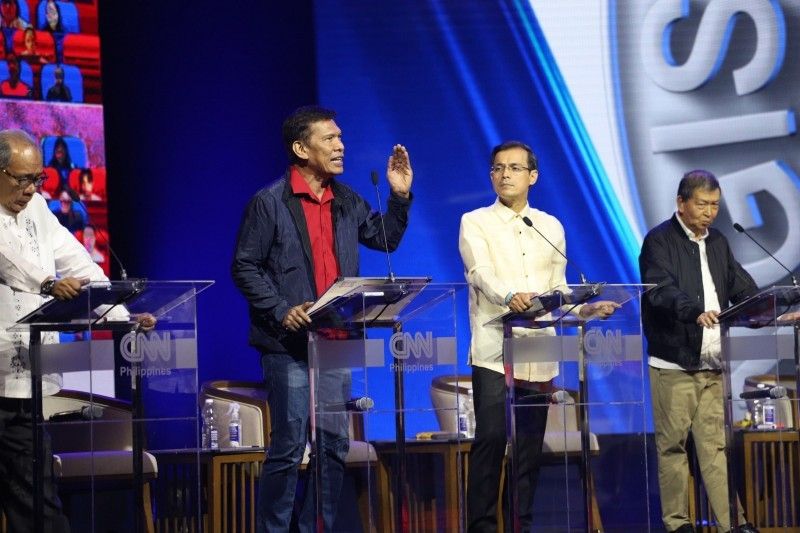What happens to debt? Presidential bets chime in

MANILA, Philippines — On concerns of managing the government's ballooning debt, presidential bets illuminated how they would bring down foreign borrowings, which shot up as the Duterte administration tapped the international debt market to fund its pandemic response.
The government recorded P11.73 trillion in outstanding debt last year. These liabilities, as a share of the economy, ballooned to 60.5%, the highest since the 65.7% ratio seen in 2005.
Already, analysts believe the biggest headache for the next president would be the government’s heavy debt pile that has accumulated during the pandemic. To pay down these obligations, experts said the new president might be forced to make tough decisions like raising taxes or limiting spending, both of which could have massive implications on the nascent administration’s economic ambitions and popularity.
Here's what presidential aspirants said as they squared off at the CNN Philippines presidential debate Sunday evening:
Leni Robredo
Vice President Leni Robredo focused on allocating these foreign borrowings to priority areas in the public sector.
"Foreign debt is not necessarily bad per se. But we need to ensure that what we borrowed goes to sectors that need it the most. We're going to ensure that returns from these borrowings has to be larger than what we loaned in the first place" she said.
"We understand that at the onset of the pandemic we needed large sums of money but it is unjustifiable that those borrowed funds went to corruption," Robredo added.
Panfilo Lacson
"Every budget hearing I ask the Department of Budget and Management why the projected deficit is at P650 billion and why do we borrow double the amount? They don't answer it," Sen. Panfilo Lacson said.
Lacson said he wants judicious spending and a balanced budget, which would block non-essential projects from getting funding. He reckoned that the unutilized budget in the past 10 years amounted to P328 billion on average between 2010 to 2020.
"The budget loses P700 billion annually," he added.
Isko Moreno
Manila City Mayor Isko Moreno floated the idea of selling some state assets to pay down debts.
"I will dispose of non-performing and underperforming assets of the State to offset to our debt servicing. You have to let go of these liabilities of the State to address a particular problem," Moreno said.
Ernesto Abella
Former presidential spokesperson Ernesto Abella wants to industrialize sectors of the economy further, citing the need for entrepreneurship. As it is, large portions of the Philippine economy depend on consumer spending, which took a hit at the onset of the pandemic as mobility was severely restricted then.
"We don't have productive industries. We need to create a national industry and use those borrowings there," he said.
"We need to be entrepreneurial in our approach to lift 23 to 26 million people (out of poverty) especially the 12.5 million hungry Filipinos," Abella added.
Leody de Guzman
Labor leader Leody De Guzman asserted that government borrowing to fund its programs is not inherently wrong, provided the governance is clean.
"Borrowing is right under the right government but there needs to be a serious reorientation of the economic system. If it is solely export-oriented that is almost always unprofitable, we would need to resort to loans most of the time. We need to build our own industries," he said.
Likewise, de Guzman pointed out that the government's current debt levels, at P11.7 trillion by the end of 2021, suffered as a result of the Marcos dictatorship plundering the Philippine coffers in its time.
Joey Montemayor
For Dr. Joey Montemayor, a cardiologist by profession, foreign borrowing, which he brands "bad," means "mortgaging the future generation."
"We are mortgaging the future generation...In the national budget, it goes to funding infrastructure projects which entails excavating functional public roads. We will restructure, create a safety net so that those funding will not course through local government units. We will clog all loopholes for corruption," he said.
- Latest
- Trending































